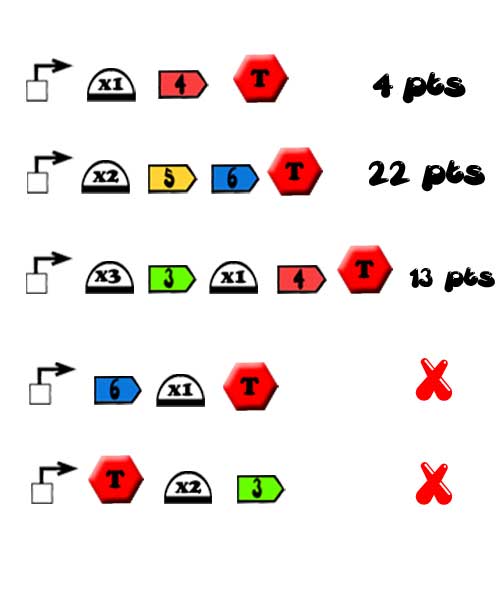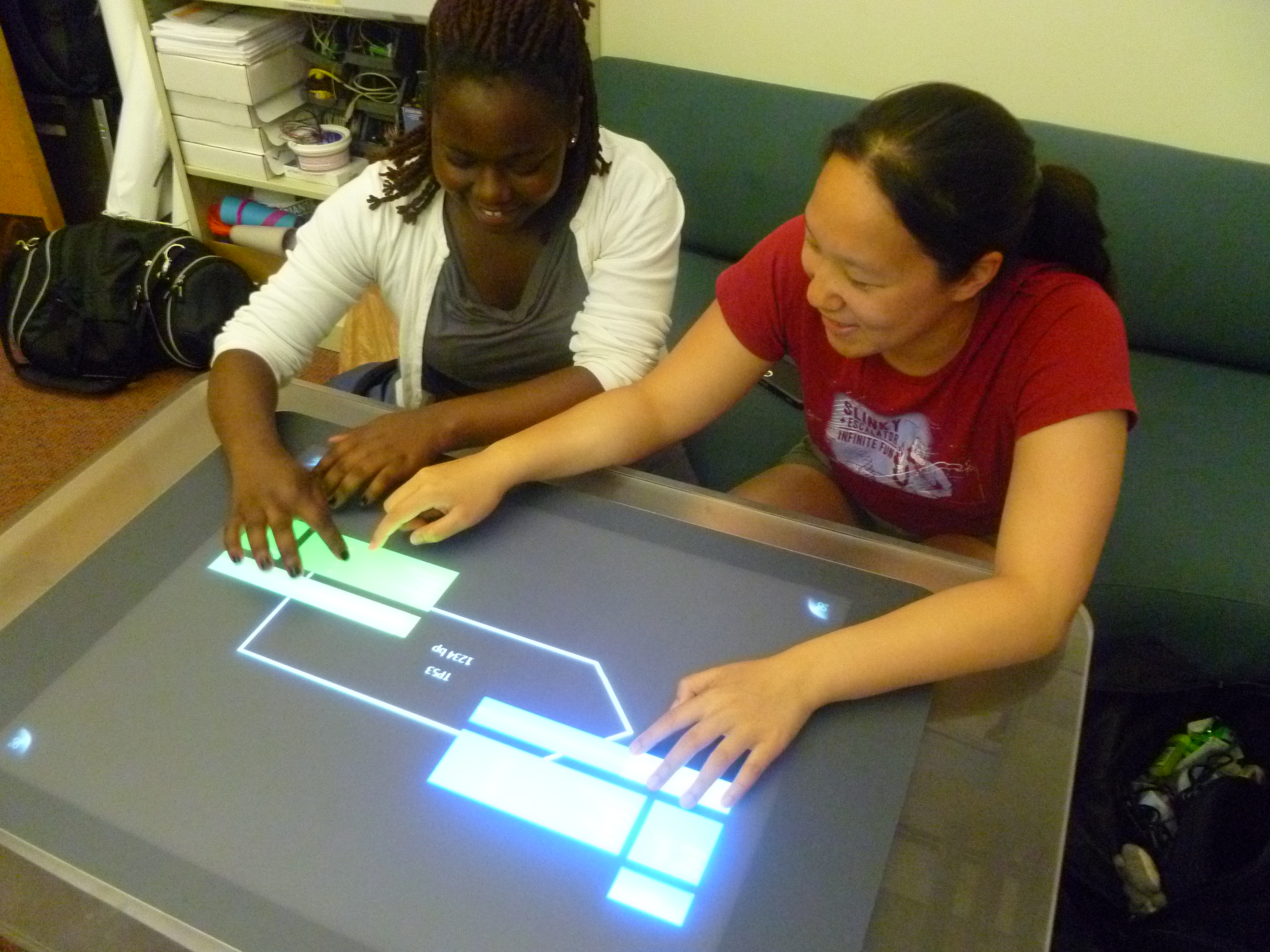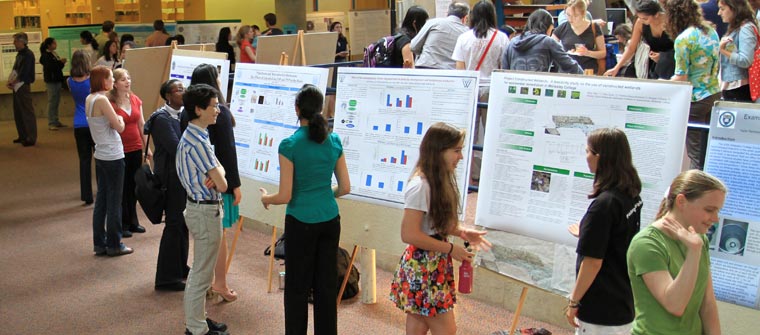Team:BU Wellesley Software/Outreach
From 2011.igem.org
Outreach
Overview
As the Boston University/Wellesley College iGEM team, one of our principle goals is to reach out to the young population in and around Boston and educate them about the exciting field of synthetic biology.
Our current plan is to formulate an outreach plan with Gretchen Fougere, Assistant Dean of Outreach and Diversity at the College of Engineering within Boston University. We realize that the future of synthetic biology is heavily dependent upon the future generation’s interest in the field. Our goal is to spark the interest of middle and high school students in synthetic biology through a short presentation and an interactive game. The presentation portion allows us to provide the students with a brief background in synthetic biology and gives them an opportunity to learn about the work that we have done over the summer.
The interactive game provides the students with a more hands-on approach to the design and construction of genetic circuits. Our version of Scrabble teaches students how to compose valid genetic circuits and learn about their interactions with one another. Through these activities we hope to encourage students to consider the possibility of entering the field of synthetic biology in the future.
We want them to see the current and potential future applications of this field and how rewarding a career in synthetic biology can be!
Genekai
Description
Genekai is a fun and educational board game that exposes the player to the world of synthetic biology. Players are given game pieces that represent biological parts and must use them to create valid biological circuits on the game board. The game board is filled with bonuses like ‘Double Gene’ and ‘Double Circuit’ which the player can strategically take advantage of.
![]()
![]()
Instructions
- Each player puts down two pieces per turn.
- A valid circuit must contain a Promoter, RBS, any number of Genes, and a Terminator.
- The RBS gene multiplier multiplies the point values of all genes preceding the RBS.

- Player that completes a circuit receives points for the circuit.
- Bonuses will only be applied when the player claims a bonus square AND completes the circuit during the same turn.
- Genes come in color pairs, blue and red is paired and green and yellow is paired. When a player completes a circuit using part of another circuit and the genes in those circuits are colored pairs, the user receives points for both circuits.
Somerville High School
Framingham High School
This summer, the we had two students from Framingham High School as part of our iGEM team. They each spent approximately 60 hours each working side-by-side with undergraduates.

During their time in the HCI lab, these students learned what Computer Science is all about. The possibilities of Computer Science and the many fields that use computer science, including Biology and Art, among others.
Summer Poster Session
At the end of the summer research program, each student presented a poster summarizing the work they had done over the summer and explained it to the Wellesley College community and the Town of Wellesley.
 The poster session ran for 3 hours. During which time, every student from the HCI lab, including the High School interns, explained G-nome Surfer Pro and genomic research to any one who asked. Among those who attended the event, were students from the Wellesley High School and children of faculty and staff. Through this experience, we imparted a brief introduction of genomics and computer science to many.
The poster session ran for 3 hours. During which time, every student from the HCI lab, including the High School interns, explained G-nome Surfer Pro and genomic research to any one who asked. Among those who attended the event, were students from the Wellesley High School and children of faculty and staff. Through this experience, we imparted a brief introduction of genomics and computer science to many.
 "
"
